EcoSisters in Action: Cultivating Social Innovation through Native Planting
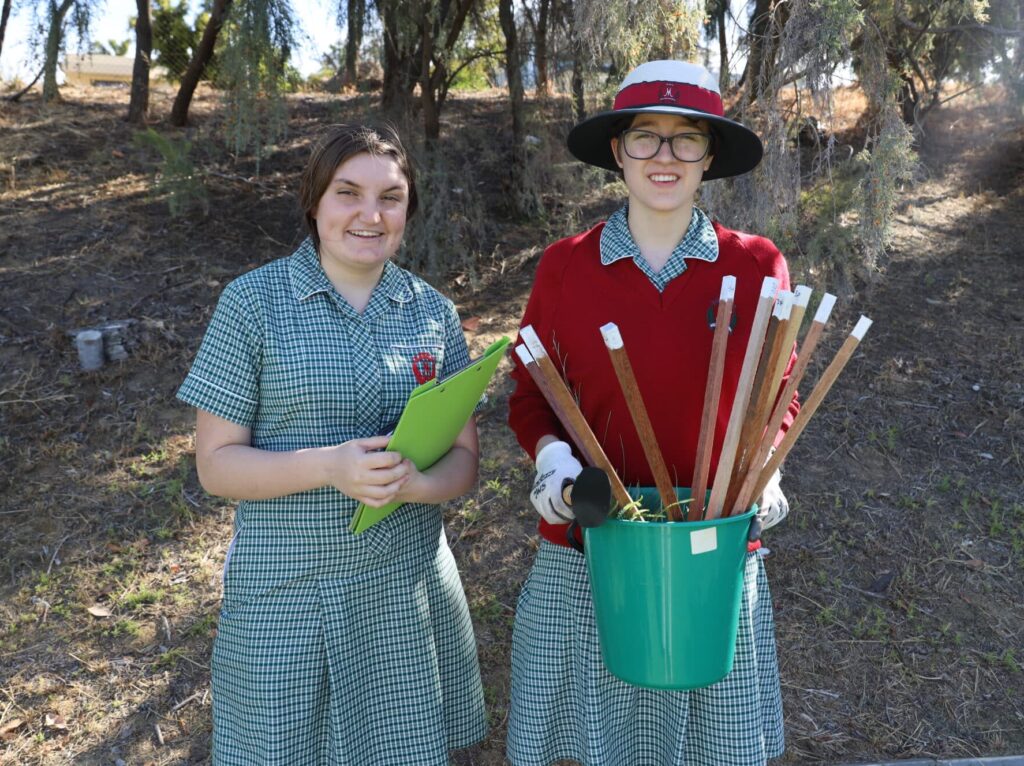
To further advance our College’s commitment to a sustainable future and the College pillar of Social Innovation, as part of the 2021 – 2025 Strategic Framework, our EcoSisters are embarking on a mission to increase native plants throughout the College campus to expand habitat for native invertebrates, birds and other organisms. This endeavour not only enhances the College’s connection to the local environment, but also offers valuable learning opportunities for students in biology and science classes.
The Concept
At the beginning of this year, two students from the Class of 2023, Gabrielle Goes and Sascha Finlay-Collins, had the privilege of attending a Caritas Conference hosted by Aquinas. Following an interview with Costa Georgiadis from Gardening Australia, both students became enthusiastic about expanding the presence of native gardens on the school grounds. Their enthusiasm ignited a domino effect among the younger students, nurturing a stronger appreciation for Australian native habitats, ecosystems, and the importance of their conservation.
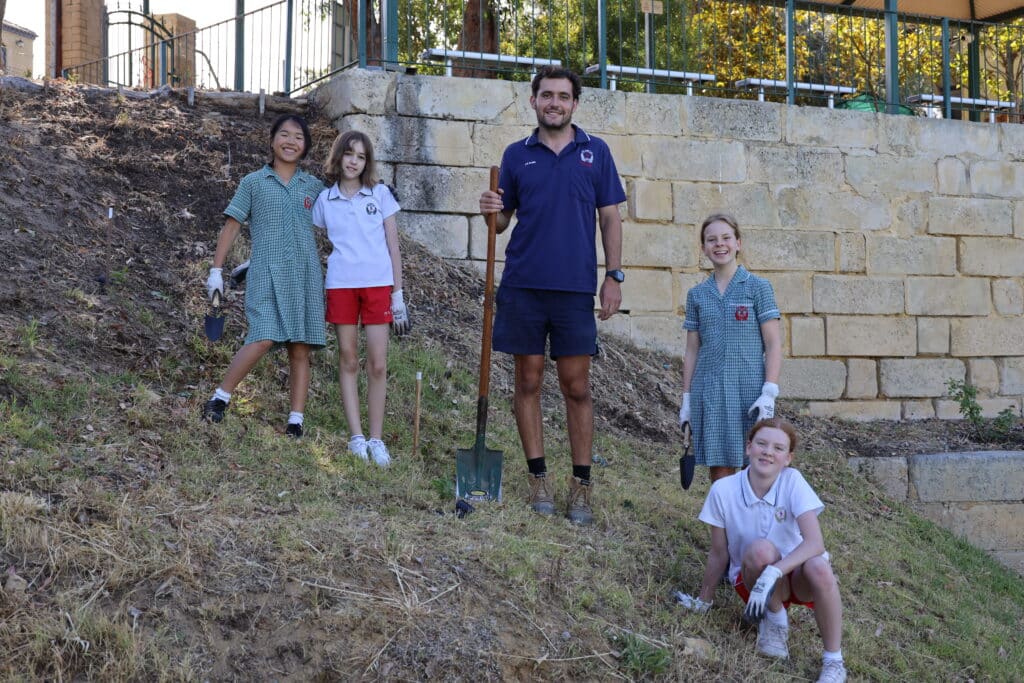
The Benefits
Kate Creasy, the EcoJustice Leader for the 2022/2023 academic year, carried on this initiative, which has now been passed on to Arlena Garces, the 2024 EcoJustice leader. Arlena explains why this initiative is of such significance:
“The native planting initiative is a great opportunity for girls in different year groups to connect and make a difference in their local environment. The main goal for the planting initiative is to increase and improve the native habitat around the College to make it more attractive to native animals such as pollinators like native bees, birds like honey eaters and also to provide food for larger birds like the black cockatoos. This native planting initiative will help to spread awareness about the importance of environment conservation as well as provide an opportunity for girls to meet people outside their year groups in pursuit of a common goal.”
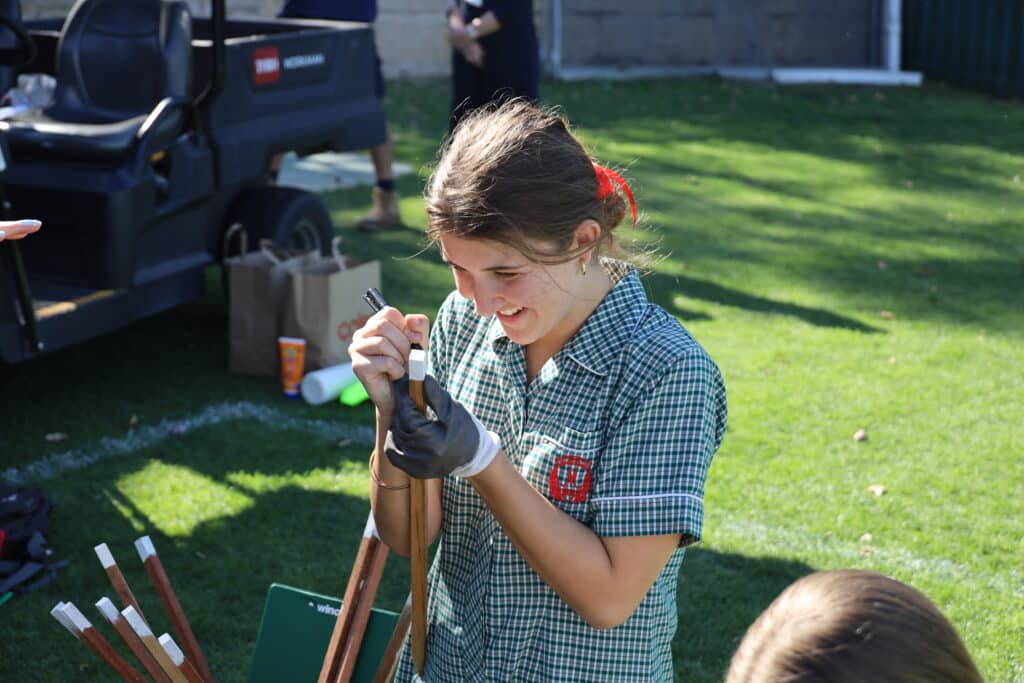
The Planting
As the EcoSisters are also dedicated to raising awareness among students about the conservation of the endangered WA black cockatoos, specifically the Carnaby cockatoo, the carefully selected plants for the planting initiative have been chosen due to their attraction for black cockatoos as a food source.
So where can we find these natives? These native plants will find their new homes between Cawston Road and the College oval, along the fences bordering Stoneham Road, throughout the terrace area, and surrounding the recently constructed car park.
The EcoSisters are playing a pivotal role in planting these native species, and future planting sessions will occur during meetings or after school, under the guidance and supervision of EcoSisters Coordinator Joanne Priest, other EcoSisters leaders, and other staff members.
We extend our appreciation to the EcoSisters for their contributions to this initiative and eagerly anticipate the positive impact it will have on the Santa Maria eco-system.
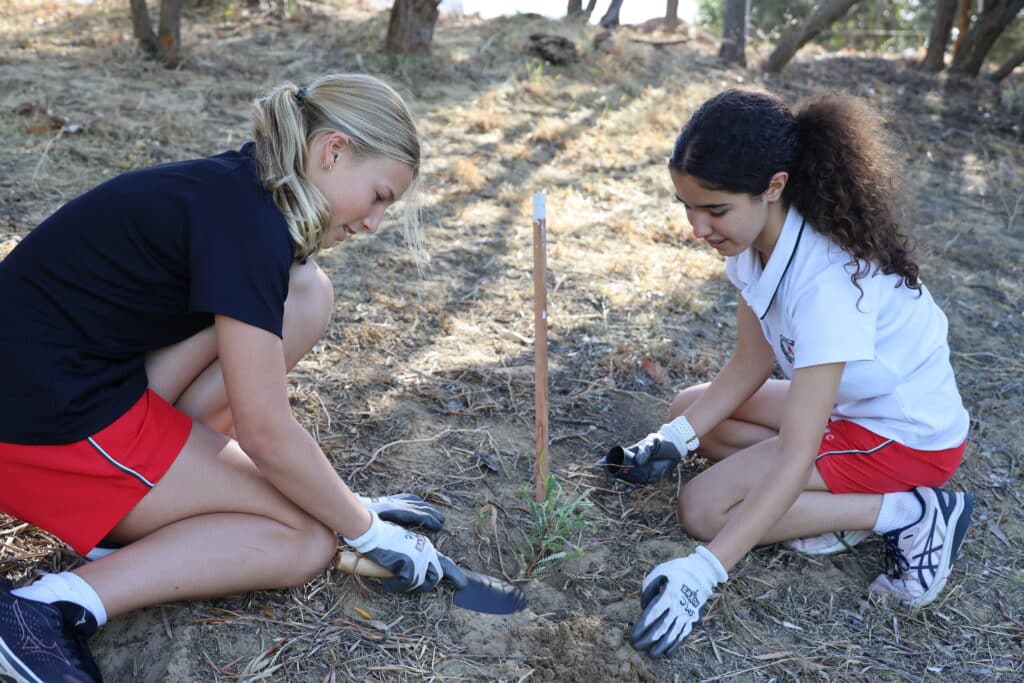
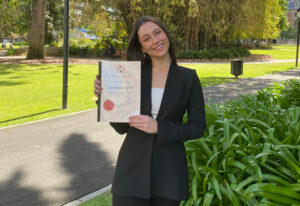
Uplifting the Unvoiced: Caitlyn Goldney’s (2013) Inspiring Advocacy
Caitlyn Goldney (2013) is a passionate advocate dedicated to giving back to the community through her legal savoir faire.

Combating The Attention Span Crisis In Our Students – Jennifer Oaten
It is no secret that attention spans have been steadily declining, especially among younger generations growing up immersed in digital technology. The average person’s attention span when using a digital device has plummeted from around two and a half minutes back in 2004 to just 47 seconds on average today – a dramatic 66% decrease over the past two decades.

Weekly Wrap Up: Term 2, Week 2, 2024
Week 2 has come to an end! This Weekly Wrap Up features highlights from Scuba Diving Club, the Sisterhood Series, and Boarding ANZAC Service.
- Collaboration, Featured, Initiative, ProblemSolving, Stewardship
Author: Santa Maria College
Santa Maria College is a vibrant girls school with a growing local presence and reputation. Our Mission is to educate young Mercy women who act with courage and compassion to enrich our world. Santa Maria College is located in Attadale in Western Australia, 16 km from the Perth CBD. We offer a Catholic education for girls in Years 5 – 12 and have 1300 students, including 152 boarders.






